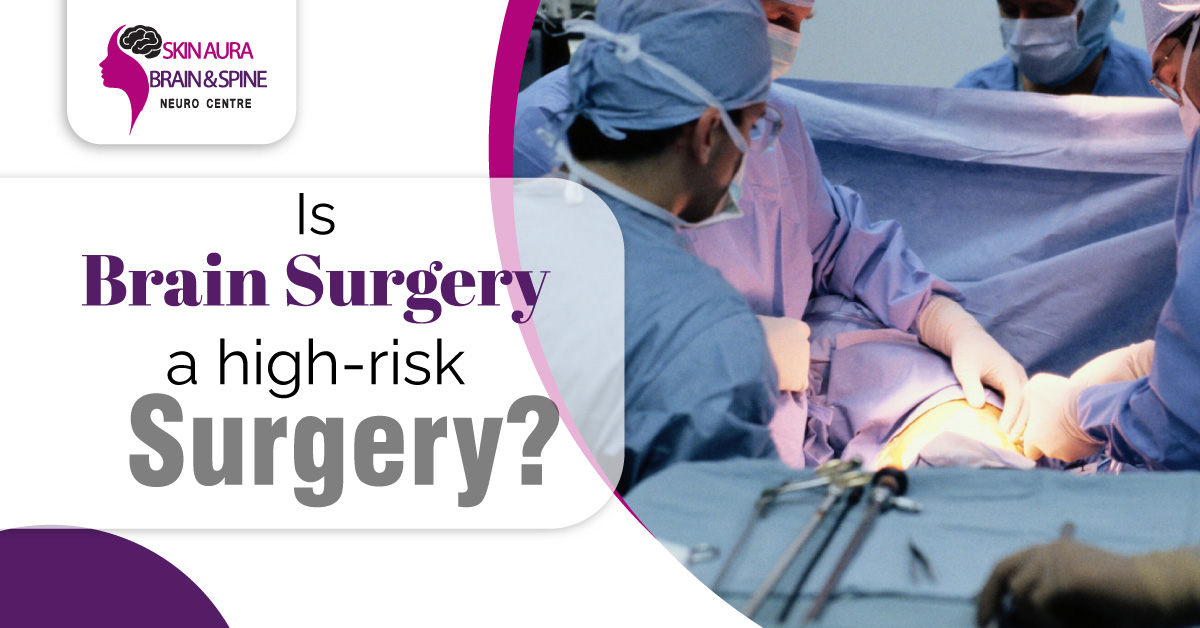The brain is one of the most vital organs in the human body, controlling various functions such as movement, sensation, cognition, and emotion. Surgery may be required to treat the condition when the brain is affected by diseases, injuries, or tumors. However, brain surgery is a complex and delicate procedure with inherent risks.
Types of Brain Surgery:
Brain surgery is a broad term that includes various procedures to treat different conditions. The most common types of brain surgery include:
Tumor removal surgery: This procedure involves removing abnormal growths in the brain, such as tumors or cysts, that may be cancerous or non-cancerous.
Aneurysm repair surgery: This procedure involves repairing a weak or bulging spot in a blood vessel in the brain to prevent a rupture or hemorrhage.
Epilepsy surgery involves removing the part of the brain responsible for seizures in patients with epilepsy.
Each type of brain surgery carries its specific risks and potential complications.
Factors that Affect the Risk of Brain Surgery:
Several factors can affect the risk level of brain surgery, including:
Age and health status: older adults and those with pre-existing medical conditions, such as diabetes or heart disease, may be at higher risk for complications during and after surgery.
Location of the brain tumor: Tumors in critical brain areas, such as the brain stem or cerebellum, may be more difficult to remove and may carry a higher risk of complications.
Experience and skill level of the surgeon: The experience and skill level of the surgeon performing the procedure can significantly impact the risk level of brain surgery.
Risks Associated with Brain Surgery:
Brain surgery carries several potential risks and complications, including:
Infection: Surgery on the brain can increase the risk of infection, which may require additional treatment and recovery time.
Bleeding: Surgery on the brain can cause bleeding, which may require further surgery to address.
Seizures: Brain surgery can trigger seizures in some patients, which may require medication to control.
Stroke: Surgery on the brain can increase the risk of stroke, which can cause long-term damage or even death.
Cognitive impairment: Brain surgery can cause temporary or permanent cognitive impairment, such as memory loss or difficulty with speech.
The mortality rate associated with brain surgery has improved significantly over time due to technological advancements and surgical techniques. However, the risk of complications still exists, especially in high-risk cases.
Advancements in Brain Surgery:
Advancements in technology and surgical techniques have greatly improved the safety and efficacy of brain surgery. Some of the latest advancements include:
Advanced imaging techniques: Advanced imaging techniques, such as magnetic resonance imaging (MRI) and computed tomography (CT) scans, allow surgeons to locate tumours and lesions in the brain with greater precision.
Minimally invasive surgical techniques: Minimally invasive surgical techniques, such as endoscopic surgery, can reduce the risk of complications and speed up recovery times.
Robotic surgery: Robotic surgery can provide greater precision and control during brain surgery, reducing the risk of complications.
The Importance of Patient Education:
Patients must be fully informed about the risks and benefits of brain surgery before deciding. Patients should seek resources such as online information and support groups to educate themselves about brain surgery. Additionally, patients should choose a qualified and experienced neurosurgeon to perform the procedure.
Brain surgery is a complex and delicate procedure that carries inherent risks. However, advancements in technology and surgical techniques have greatly improved the safety and efficacy of brain surgery, and patients must be fully informed about the risks.
